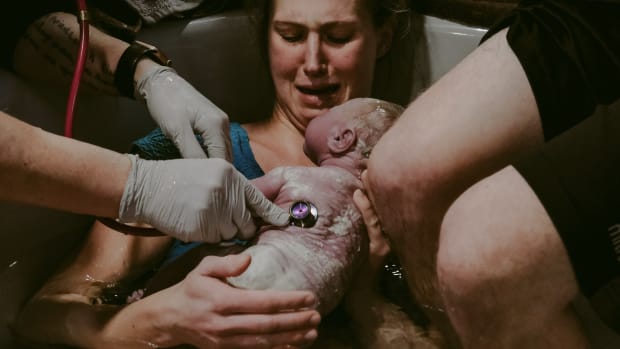
Understanding the Elusive ‘Spark’ in Dating Relationships
That feeling of “clicking” with someone else is almost magical. At the start of a new relationship, chemistry is definitely something you’ll notice.
Yet chemistry in relationships is not understood that well. Recent research on chemistry notes that there are aspects of compatibility that feed into chemistry, but that there are also “indescribable features” of chemistry that are not really clear. It’s just an instant and mystifying connection—it’s either there or not.
One thing that is clear about chemistry is that it has a biological basis. Cultural anthropologist, Helen Fisher, has studied chemistry and bonding in romantic relationships and has found that we are often attracted to others with a “biological profile” that complements our own. This intense attraction leads us to pursue a relationship with someone who should arguably be a good fit, and if other aspects of the relationship click, ultimately these biological components will develop into a bond or attachment with the other person.
Sure, you can pursue a relationship without chemistry, however you will be missing out on some of the key biological aspects of bonding as well as a very strong motivator to work hard at a relationship to keep it strong and healthy. You can think of it this way, it's much easier to make the sacrifices that love demands of us when you actually desire that person.
So, if chemistry is this enigmatic but essential aspect of a relationship, what are you to make of it? How are you to determine what to do when you have chemistry and when you don’t?
01. Know thyself.
Chemistry can be instantaneous. You look across a crowded room and are immediately drawn to one particular person. They electrify you. This is immediate chemistry—and it can be extremely intoxicating.
On the other hand, chemistry can be absent in the beginning of a relationship but creep in slowly over time. As you get to know someone and spend more time with them, your attraction and feeling of chemistry grows.
Here’s the thing, it is important to have some insight into the type of person you are. Do you tend to develop chemistry instantly or over time?
Take some time to reflect on your experience with developing chemistry in relationships and consider the following questions.
- Do you have a pattern? What can you learn from it?
- If you’ve never developed chemistry over time, do you want to test this out and give a good guy a little longer to see if it can develop?
- If you can develop chemistry over time, how long does it take? Depending on how long it takes you may want to set some boundaries in this initial trial period.
- If you develop chemistry quickly, does it ever go as quickly as it came? If so, definitely enforce some boundaries as you test out your true fit as a couple.
02. Set a deadline.
Okay, so if you tend to develop chemistry over time then practice setting a deadline. A good rule of thumb is that if you don’t have chemistry within six months, you probably won’t have it (make your own personal rule of thumb based on your personality and patterns from your relationship history). And certainly, if other aspects of the relationship aren’t going well or you two are a mismatch in terms of compatibility, values, personality, etc. then the relationship should end regardless of the deadline.
I want to be clear, this deadline isn’t the absolute answer to every relationship scenario. This is meant to help you in situations in which you feel like you are “checking all the boxes” with someone you’re dating, yet there is no or little chemistry. Setting a deadline helps to prevent you from staying too long in a relationship that ultimately won’t go anywhere.
03. Keep it in check.
Chemistry can be misleading. If you are in a relationship and have great chemistry, it doesn’t necessarily mean that the person is a good fit. Chemistry just means you have a great attraction.
So, do not use chemistry as the only gauge of a healthy relationship or even the primary gauge for that matter. Chemistry can be entrapping because it can overshadow some serious red flags, causing you to get hot and heavy quickly in a relationship with someone that actually is a bad fit for you and to rationalize away the red flags because of an intense and electric attraction.
The best way to keep your chemistry in check is to not move too quickly in a new relationship and to set boundaries around how quickly you progress in your physical relationship as well as how much trust you invest in a partner. One of the most overlooked mistakes people make in relationships, is that they “believe” the best in someone before actually allowing time to test and prove that belief. Trust is best paced when you believe the good in someone while still having a clear enough head to examine the facts.
So make sure to rein in your intense attraction and set some limits to how much belief you put in a partner and to your physical relationship in order to allow time and thoughtful questions to reveal your partner’s true character. This way you can truly measure how well-matched this person is for you.
Chemistry is an essential piece of the puzzle to a relationship that has a good chance of standing the test of time. But other areas are even more necessary and predictive of future happiness like shared values, mutual interests, good use of communication and conflict resolution skills, conscientiousness, and patterns of healthy relationship behaviors in other relationships.
In your relationships, chemistry absolutely is significant and deserves attention. However, make sure you’re not counting someone out too soon or building a relationship on only good chemistry.
Editors' Note: If you support the mission of Verily and want to see us go to print (as you’ve asked us to), subscribe today to Verily Yours. You’ll receive exclusive, quality content that will simplify and elevate your everyday, while supporting empowering women’s media.








